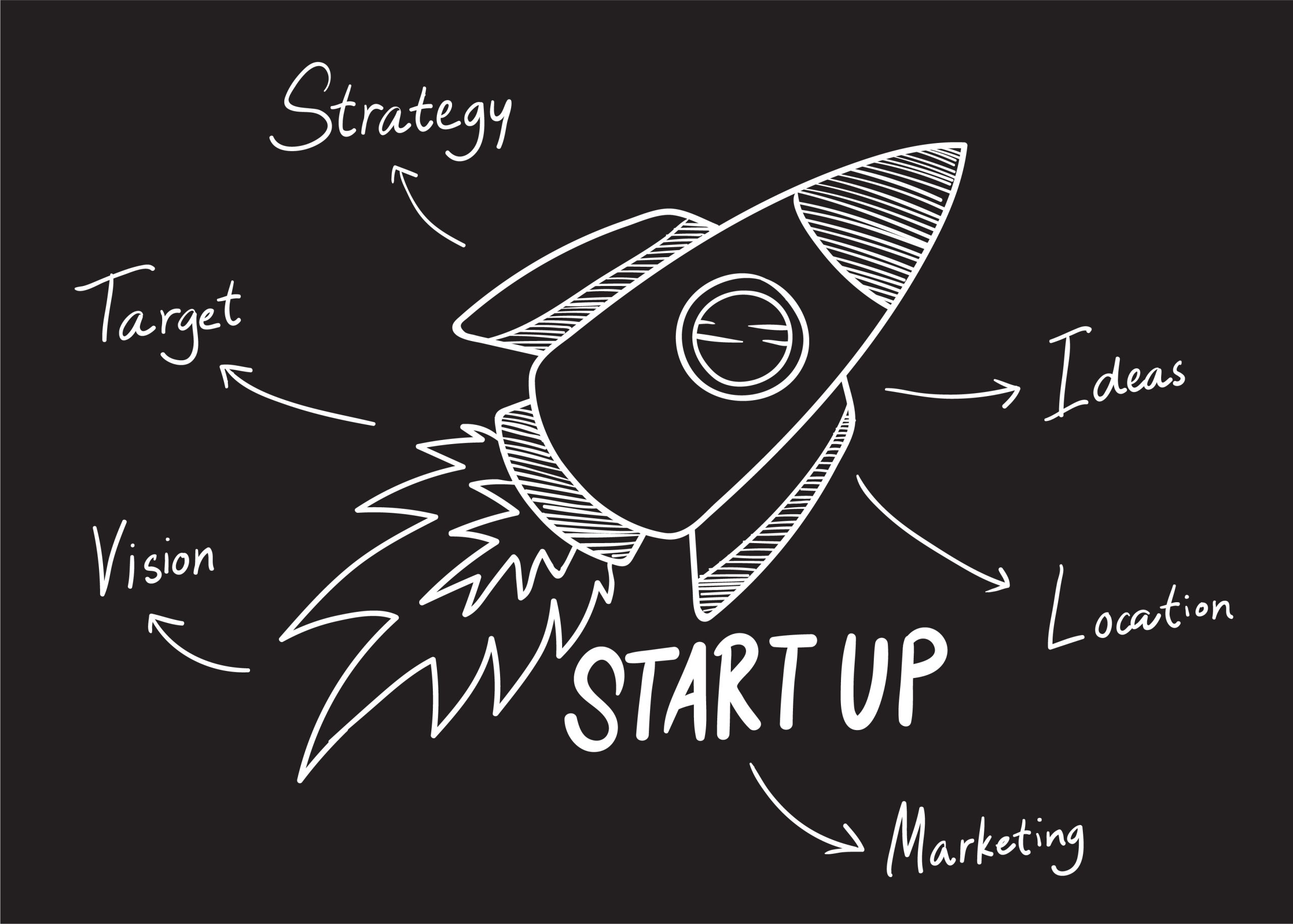Pros of Starting a Startup* Flexibility and Autonomy: Starting a startup allows you to have more control over your work schedule and decisions, leading to greater flexibility and autonomy.
- Innovation and Creativity: Startups provide an environment where innovation and creativity can thrive. This encourages thinking outside the box and coming up with unique solutions to problems.
- Potential for High Growth: Startups have the potential for rapid growth and scalability, offering the opportunity for significant financial success and market impact.
Starting a startup can be challenging, but these advantages highlight the exciting opportunities that come with embarking on an entrepreneurial journey.
The Rise Of Venture Capital Funding
In recent years, the startup world has witnessed unprecedented growth and expansion, fueled largely by the rise of venture capital funding. Venture capital firms have become key players in supporting innovative startups and driving economic growth by providing crucial funding to early-stage companies with high growth potential.
Venture capital funding has enabled startups to scale rapidly, launch new products and services, and expand into new markets. This influx of capital has allowed entrepreneurs to focus on building their businesses without being constrained by limited resources.
Moreover, venture capital firms bring more than just financial support to startups. They also provide valuable expertise, mentorship, and networking opportunities that can help young companies navigate the challenges of scaling their operations. By partnering with experienced investors, startups are able to access a wealth of knowledge and resources that can accelerate their growth trajectory.
As venture capital funding continues to play a pivotal role in the startup ecosystem, we can expect to see even more rapid innovation and disruption across industries as ambitious entrepreneurs seize the opportunity to turn their bold ideas into successful businesses.

Tech Hubs And Startup Ecosystems
Tech hubs and startup ecosystems have become synonymous with rapid growth and expansion in the startup world. These hubs serve as breeding grounds for innovation, collaboration, and investment opportunities. In these dynamic environments, entrepreneurs are able to connect with like-minded individuals, access resources such as funding and mentorship, and tap into a network of industry experts.
One of the key advantages of tech hubs is the concentration of talent they attract. By bringing together individuals with diverse skill sets and experiences, these ecosystems foster creativity and drive innovation. Additionally, the presence of established companies and successful startups within these hubs provides aspiring entrepreneurs with valuable insights and opportunities for partnerships.
Moreover, tech hubs often benefit from government support in the form of grants, tax incentives, or infrastructure development. This support helps create a conducive environment for startups to thrive and grow rapidly.
Overall, tech hubs play a crucial role in shaping the future of entrepreneurship by providing a platform for collaboration, innovation, and growth in the startup ecosystem.
Scaling Strategies For Startups
As startups experience rapid growth and expansion, they must carefully consider their scaling strategies to ensure sustainable success. One key aspect of scaling is maintaining a focus on the company’s core values and mission while adapting to the changing needs of a growing customer base. This involves aligning the team around a common vision and ensuring that everyone is working towards the same goals.
Another important consideration for startups looking to scale is building a strong foundation for growth. This includes investing in scalable technology systems, processes, and infrastructure that can support increased demand without compromising quality or efficiency. By laying this groundwork early on, startups can avoid costly setbacks as they continue to expand.
Furthermore, effective communication becomes even more critical as a startup scales. Clear communication channels and transparent decision-making processes are essential to keep everyone aligned and moving in the same direction. This can help prevent misunderstandings or missteps that could derail progress.
Ultimately, successful scaling requires a balance of innovation, flexibility, and strategic planning. By carefully considering these factors and implementing scalable strategies, startups can navigate rapid growth with confidence and set themselves up for long-term success in the competitive startup world.
International Expansion Opportunities
As startups experience rapid growth and expansion in their home countries, many are looking towards international markets as the next step in their journey. With advancements in technology and communication, it has become easier than ever for startups to reach customers around the world.
One of the main reasons why startups are eyeing international expansion is the opportunity to tap into new markets and customer segments. By expanding globally, startups can diversify their revenue streams and reduce dependence on a single market. This not only helps in mitigating risks but also opens up new growth opportunities.
Moreover, entering international markets allows startups to access a larger talent pool and benefit from diverse perspectives. Collaboration with international partners can bring fresh ideas and innovative solutions to the table, helping startups stay ahead of the competition.
While there are challenges involved in expanding internationally such as cultural differences, regulatory hurdles, and logistical complexities, many startups view these as opportunities for learning and growth. By carefully strategizing their entry into new markets and leveraging local resources, startups can successfully navigate the complexities of international expansion and achieve sustainable growth on a global scale.

Challenges Of Rapid Growth In Startups
One of the biggest challenges that startups face during rapid growth and expansion is maintaining company culture. As a startup grows quickly, it can be difficult to preserve the values and beliefs that were originally established. This can lead to a loss of cohesion among employees, decreased morale, and ultimately impact the overall success of the company.
Another challenge is managing cash flow effectively. With rapid growth comes increased expenses, such as hiring new employees, expanding operations, and investing in new technologies. It can be challenging for startups to balance these expenses with incoming revenue, potentially leading to financial strain and instability.
Additionally, scaling operations can be a significant challenge for startups experiencing rapid growth. As the customer base expands and demand increases, startups must be able to scale their operations efficiently in order to meet this demand while maintaining quality and customer satisfaction.
Overall, navigating the challenges of rapid growth in startups requires strategic planning, strong leadership, and effective communication among all members of the organization. By addressing these challenges head-on, startups can successfully navigate periods of rapid growth and position themselves for long-term success in the competitive startup world.
Trends In Startup Acquisitions And Mergers
As the startup world continues to experience rapid growth and expansion, one of the most notable trends in recent years has been the increase in startup acquisitions and mergers. This trend reflects the maturation of the startup ecosystem, as well-funded companies look to acquire innovative startups to fuel their own growth and gain a competitive edge in their respective industries.
One key driver of this trend is the desire for established companies to tap into new markets or technologies that they may not have developed internally. By acquiring a startup with a unique product or technology, companies can quickly expand their offerings and reach new customers without having to invest time and resources into developing these capabilities themselves.
Additionally, startups are increasingly seeing acquisition as a viable exit strategy for their investors. As more startups achieve significant growth and attract attention from larger companies, acquisition offers founders and investors a way to realize returns on their investments while also ensuring that their innovations continue to thrive under new ownership.
Overall, the trend of increased startup acquisitions and mergers reflects the dynamic nature of the startup world, where innovative ideas can quickly translate into valuable assets that drive growth and expansion for both startups and established companies alike.

Impact Of Covid-19 On Startup Growth
The COVID-19 pandemic has had a significant impact on the rapid growth and expansion seen in the startup world in recent years. Many startups have been forced to pivot their business models or even shut down entirely due to the economic challenges brought on by the global health crisis. The uncertainty surrounding the pandemic has made it difficult for startups to secure funding, scale their operations, and attract customers.
One of the main challenges faced by startups during this time has been adapting to remote work and maintaining team morale and productivity. The sudden shift to remote work has highlighted the importance of strong communication and collaboration tools, as well as effective leadership and management practices.
Additionally, many startups have had to rethink their marketing strategies and customer acquisition tactics in order to stay afloat during these challenging times. With consumers spending less and focusing on essentials, startups have had to find new ways to reach their target audience and drive sales.
Overall, the impact of COVID-19 on startup growth has been profound, forcing many companies to reevaluate their business plans and strategies in order to survive in a rapidly changing market landscape.



